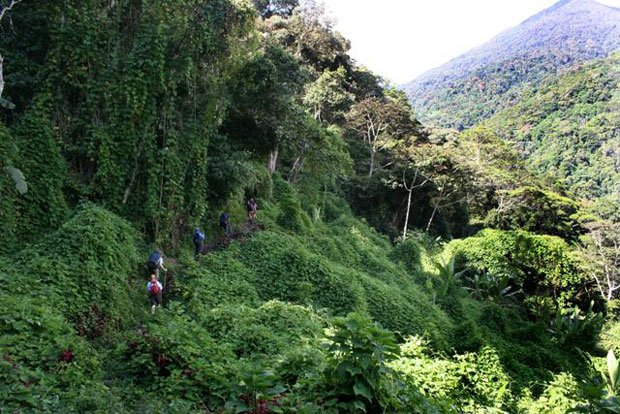Aboriginal knowledge helps Kokoda rangers

INDIGENOUS RANGERS FROM THE only Aboriginal-managed Botanic Gardens in Australia are helping their Papua New Guinean counterparts to manage the Kokoda Track.
The PNG rangers travelled to Australia to take part in the joint training program held in Booderee National Park, south of Sydney, to learn about promoting the responsible management of the legendary trail.
Nick Dexter, a ranger at Booderee, says training in PNG is sometimes Western-centric, and the two nations want to encourage indigenous staff training. “There is a strong spiritual connection with the Kokada Trail, which we want to build on,” he says.
Booderee NP’s staff, of which 80 per cent are local indigenous people, shared their experience in pest, plant and animal control, track maintenance and general park operations. Booderee NP, at Jervis Bay, won a major responsible tourism award in 2010.
“Invaluable” training
Nick says Kokada’s mountainous terrain means the PNG rangers are
often unfamiliar with the coastal environment and its fauna and flora.
“Something we did last year and again this year was arranging for the
rangers of Booderee, who come from indigenous fishing communities, to
take the guys from PNG on an ocean survey of shore birds and seals.”
The direct involvement of the indigenous community in the management of Booderee’s protected area is similar to the way Kokada is run. The CEO of the Kokoda Track Authority Rod Hilman says the exchange training program is invaluable to Papua New Guinea. “This allows Kokoda rangers to continually improve the safety and trekking experience along the track, for trekkers and local communities,” he says.
The Track was the scene of one of the bloodiest battles of World War II, where thousands of Australian troops, together with local PNG soldiers, fought off impending Japanese invasion.
Traversing the track has become popular with trekkers from both countries in recent decades, but it’s known to be extremely difficult. There have been several deaths in recent years.
RELATED STORIES

